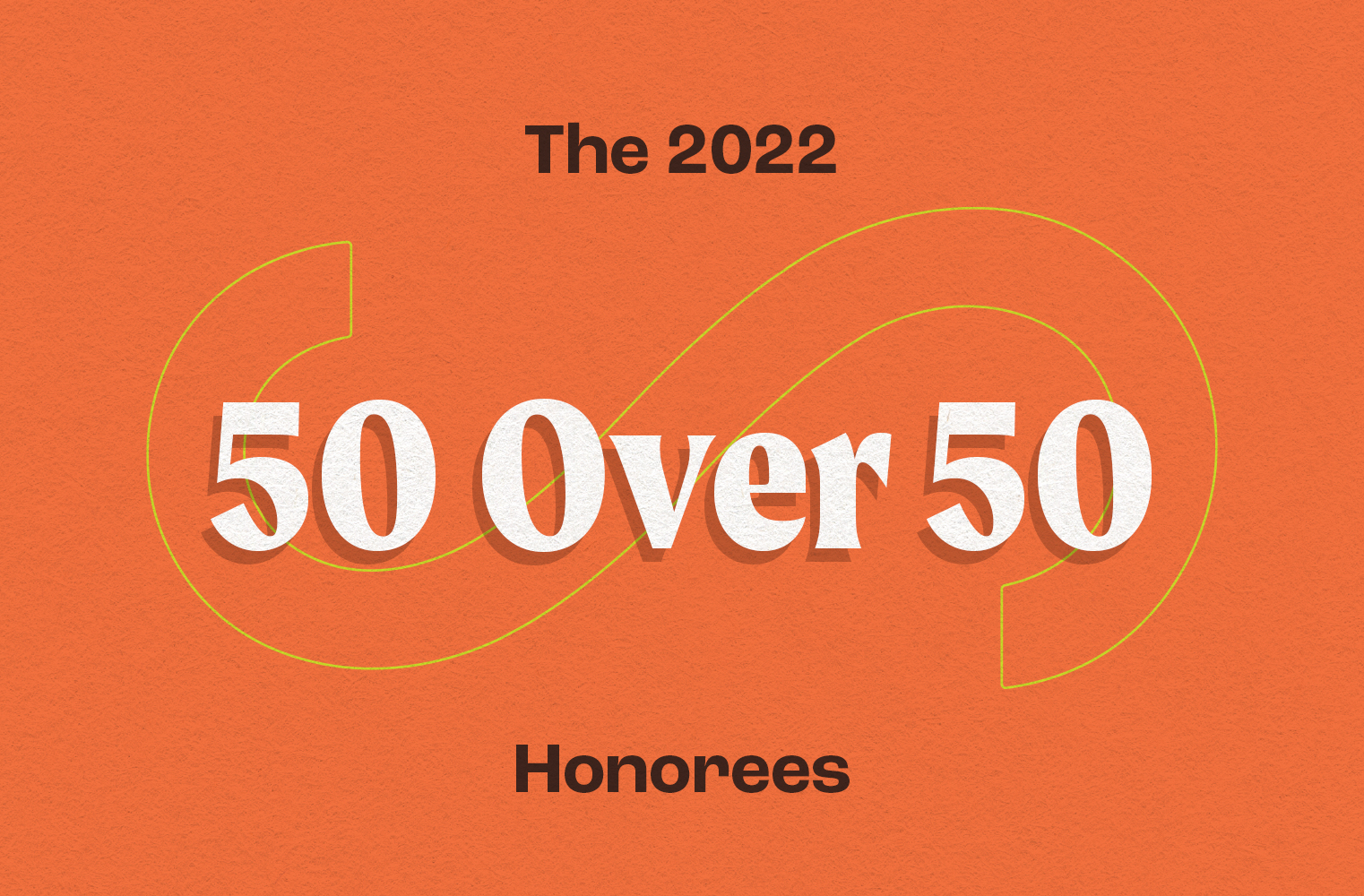
The 2022 50 Over 50 list celebrates and recognizes Minnesotans over the age of 50 who have made significant contributions and achievements in their communities.
Dream the Garden
Here we are
and some doubt it,
but we still know
what is quick and wild,
how hope or sorrow
write themselves into a day,
how we gently hold them in our hands
like maps we know all too well.
We are all that is found in the garden,
we are the roots and the runners,
the leveling and the digging,
we are the sweet shoots and the good mud.
See us
in that blaze of sun?
We are not afraid,
we are here to really feel it.
You see we are still the warriors
to the collective colors that magnify,
we are the blooms of memory
of all that came before
and the yet imagined words of the future.
Diane Jarvi, 2020 50 Over 50 Arts Honoree
Earlier this year, Minnesotans from across the state visited 50over50mn.org to nominate leaders from their communities in one of five categories: arts & culture, nonprofit, business, community building, and disruptors of the status quo. A transparent cohort of distinguished peers then took on the near impossible task of narrowing down the list to fifty of the most inspiring and accomplished leaders from across the state.
Join AARP Minnesota and Pollen at Quincy Hall in Northeast Minneapolis on Tuesday, October 25, from 4-6:30 PM for a celebration in honor of the 2022 50 Over 50 honorees. Register by October 11.
Meet AARP Minnesota and Pollen’s 2022


DISRUPTOR: Jenny Eldredge, Brian Smith, Julie Rappaport, Dr. Joi Lewis, Arne Vainio, Gail Rosenblum, Anthony Taylor, Susan Moores, Antonio Espinosa, Obie Kipper
ARTS: Anton Armstrong, Daniel Bergin, Susan Boecher, Sharon Bridgforth, Kathryn Haddad, Elizabeth Jaakola, Michael Kleber-Diggs, George Roberts, Sandy Spieler, Barbara Wiener
NONPROFIT: Atum Azzahir, Freddie Bell, Laurie Dahley, Ellen Kennedy, Sona Mehring, Katherine Sublett, Joelle Syverson, Al Tachovsky, Cheryl Thomas,
Ivy Vainio
COMMUNITY: Bill Betzler, Joan and Segundo Velasquez, Dave Beal, Stuart Hanson, Dr. Annette Parker, Julie Ristau, Bharati Acharya, Metric Giles, Belinda Charleston-Green, Lowell Johnson
BUSINESS: Tracey Williams-Dillard, Heidi Habben, Anne Sample, Kim Olson, Julie Steller, David Fhima, Mary Quinn McCallum, Carol Giuliani, Dan Stoltz, Lynn Wehrman
Age doesn’t come with unquestioned acceptance of powerful systems. The disruptor honorees illustrate that age comes with more questions that can, with hard work, lead to lasting change. Why is self-care seen as a luxury? Do positive news stories exist anymore? How can we make access to the outdoors available to everyone? These honorees want to find out and make a difference in the process.

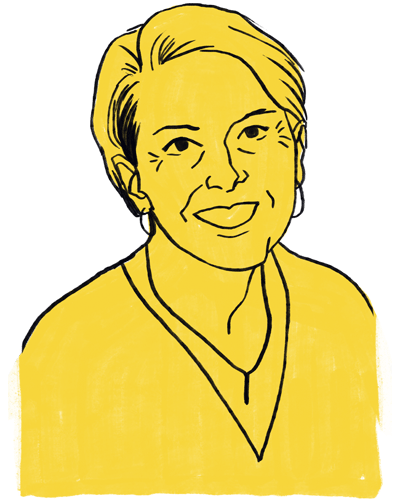
Jenny Eldredge
Mother Supporter
Jenny Eldredge, 51, has a heart for adoption. She’s an adoptive mother herself, and stood by her sister when she became a birth mother whose child was adopted. But Eldredge noticed that along with the joys that adoption brings for adoptive families, there is also deep—and often unsupported—grief for birth mothers. That grief and trauma is particularly painful for mothers whose parental rights have been terminated by the courts. As Executive Director of Bellis, an adoption support organization, Eldredge developed a first-of-its-kind network of peer support groups for birth mothers who have lost custody of their children. The model has gained national attention and puts Eldredge and her team of volunteers in a position to help thousands of women work through their loss and recover from their trauma, together.
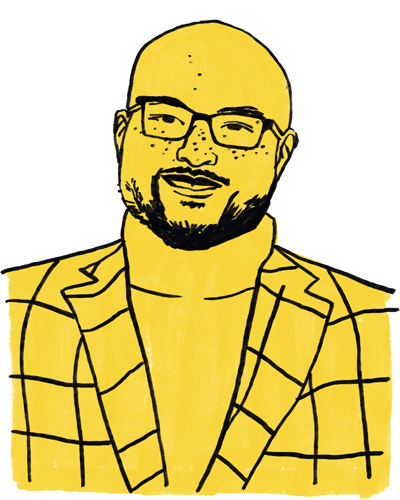
Brian Smith
Response Rethinker
Brian Smith, 51, is the Director of Performance and Innovation for the City of Minneapolis, where he’s using his position of influence to remake a host of public safety practices to center and protect Black, Indigenous and people of color residents. Case in point: The Behavioral Crisis Response (BCR) program that launched in 2021 After the city sent out a survey of residents to find out what kind of response people wanted to behavioral health 911 calls, most leaders expected the majority of residents wanted some alternative to a police presence. But Smith and his team dug deeper into the data, and found that most residents didn’t want someone from the county to respond either. Instead, they wanted a community-based response, with ownership, staff representation and expertise that reflected the community being served. The result is a first-of-its kind model where community-based providers are dispatched for behavioral health crises through 911. Says Smith, “We have to create a country and a world where those impacted most by circumstances in life, chose what is best to solve those particular circumstances.”
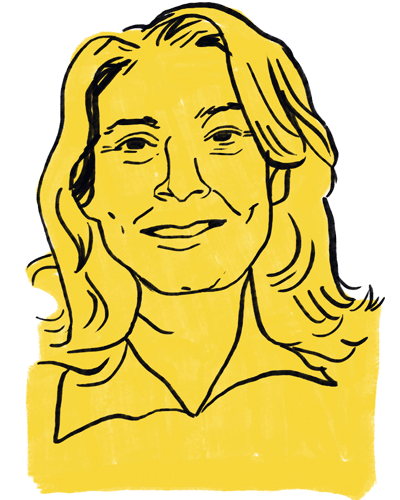
Julie Rappaport
Family Feeder
In 2015 Julie Rappaport, 59, combined her passions for gardening and social justice to start Seeds Feeds, a nonprofit that addresses food security issues for children, families, and seniors in St. Louis Park. Since then, Rappaport’s organization has taught over 5,000 kids and educators, parents and community members how to grow, prepare, preserve, and compost fresh, healthy food. When COVID heightened the need for access to healthy food, Rappaport created Operation Salad Drop, which delivered fresh salad kits to homes and offered seeds and plants for people to use in their own gardens. In 2020 and 2021, she secured a grant to purchase and provide free food for families in need and provided virtual cooking classes to help families prepare meals using the groceries they’d been sent.
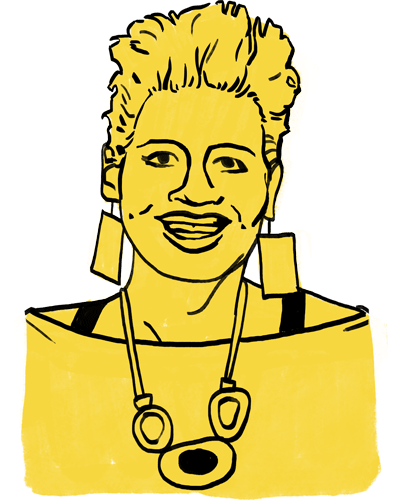
Dr. Joi Lewis
Wellness Worker
After a distinguished career in higher education, Dr. Joi Lewis stepped away to focus on her own wellness and healing in the community. Finding a lack of resources aimed at the specific trauma, stress, and challenges of Black people, she created her own. Lewis launched Joi Unlimited in 2013 and the Healing Justice Foundation in 2020, bringing healing and transformation grounded in Black Liberation. By creating therapeutic spaces for people to practice the Orange Method, which includes meditation, mindfulness, emotional liberation and conscious movement. Lewis, 53, is creating what she calls the Red Cross for the Black community. As the needs keep coming, Lewis and her team keep responding, expanding her work to include free healing sessions for people affected by oppression induced trauma, support that includes all identities of Black people, mutual aid support for people experiencing housing and food insecurity, and so much more.
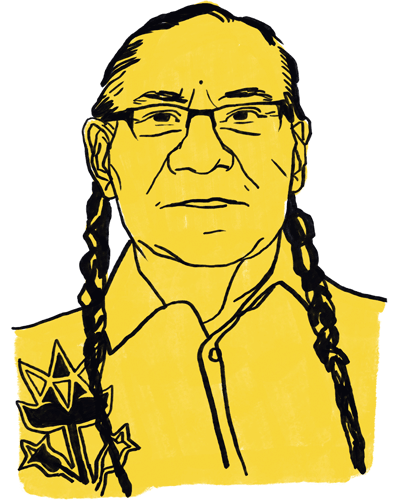
Arne Vainio
People’s Practitioner
When he was a young boy, Arne Vainio’s father died by suicide, leaving the family wracked by grief and trapped in a downward spiral of poverty. And no one came to help. But when Vainio, now 63, was a young adult trying to piece together a life, a substitute guidance counselor encouraged him to go to college. And that set Vainio a new course. Vowing to be the person who pays attention to the needs of others, Vainio went on to medical school and now serves as a family practice physician on the Fond du Lac reservation. A member of the Mille Lacs Band of Ojibwe, he hosts the Health Matters segment of Native Report on WDSE Public Television. He’s “Dr. Science” at the Ojibwe Language camp. He writes essays about his experiences for Indian Country Today and Indianz.com. He farms and taps maple trees and speaks on suicide prevention and supports the work of his wife, Ivy—a force in her own right.
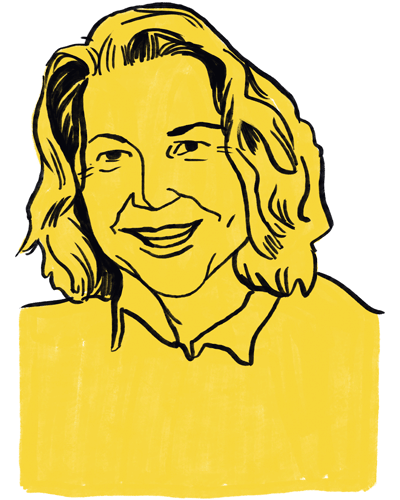
Gail Rosenblum
Positivity Producer
It takes a special kind of journalist to stand knee deep in the muck of the daily news cycle for 45+ years and not become a jaded cynic. But fueled by the belief that each of us is obligated to do our part to fix the world, Gail Rosenblum, 63, has chosen to lift up stories about goodness, hope, and change. As editor of the Strib’s “Inspired” section, Rosenblum showcases ordinary people working to challenge systems of injustice and leveraging the power of their communities to make their corner of the world a little brighter. In telling these stories, Rosenblum has inspired other media companies to create their own good news departments, with heavy hitters like The Washington Post, Mother Jones, and The Philadelphia Inquirer taking a page from her book and celebrating the stories that help us all remember that there is good out there.
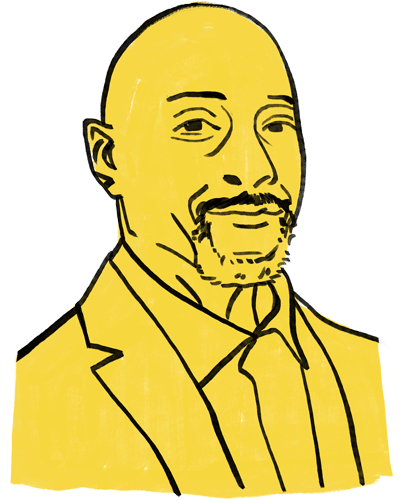
Anthony Taylor
People Mover
Anthony Taylor, 63, an avid Nordic skier, cyclist, paddler, snowboarder, and mountain biker, has his hands in a host of initiatives around the Twin Cities aimed at breaking down the barriers that keep Black folks from accessing the lakes and trails of Minnesota. A few notable examples: He created a local chapter of the Major Taylor Bicycling Club for Black cyclists. He started Slow Roll Twin Cities to help people get started with cycling. As Adventure Director of the Loppet Foundation, Taylor was a key member of the team that built the Trailhead at Theodore Wirth Park, where he started Melanin in Motion, an initiative to get Black people using the park, and Cool Meets Cause where BIPOC kids from low-income neighborhoods learn to snowboard.
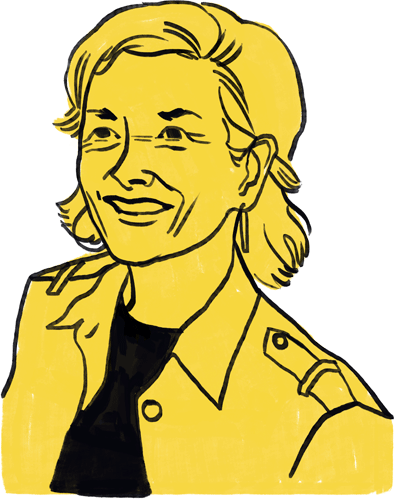
Susan Moores
Opportunity Farmer
Dietitian Susan Moores, 63, has been working within food systems when she got an idea. She knew of community gardening programs for youth and knew many people are hungering for wholesome, nourishing, delicious foods. But what if she could help them find access to the opportunities they were seeking, as well? From that seed of an idea was born Roots for the Home Team, a unique salad enterprise. Roots youth grow veggie ingredients, then they work with professional chefs to develop recipes and sell their meals at major league ball games. Yep, salad at the stadium. The idea has expanded to include serving salads to front-line workers, community groups and people challenged with chronic illnesses. Guided by a youth advisory board, Moores’ program keeps responding to the needs of the community and inspiring students to remember that sometimes the best ideas come out of left field.
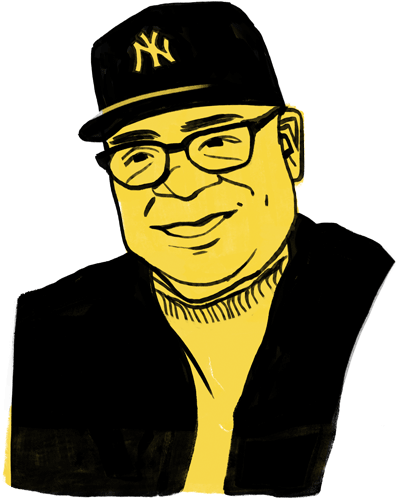
Antonio Espinosa
Art Insider
Antonio Espinosa is an unlikely disruptor. As a correctional officer at the state prison in Stillwater, Espinosa, 60, spends his days in a system not known for cultivating hope or healing. But he is disrupting it anyway. Espinosa has always had a reputation for compassion and kindness. But after his friend and colleague was murdered by one of the men in the prison, Espinosa’s drive to help incarcerated people experience transformation and restoration grew stronger. “I want the incarcerated to know that they belong, that they are still part of our community,” he says. And so he started encouraging the men at the prison to paint, draw, and create art. Soon, he turned this effort into a nonprofit, Art from the Inside, that helps the incarcerated artists sell their work and remind themselves that they are more than their worst moment.
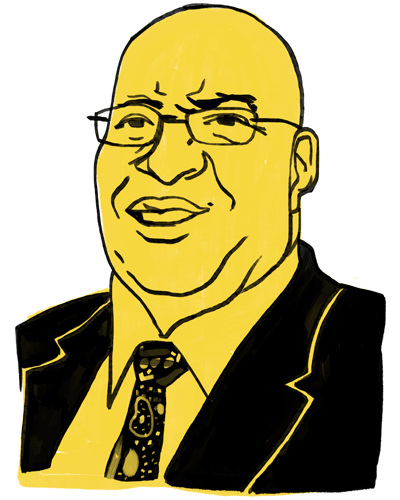
Obie Kipper
Labor Advocator
Obie Kipper is one of those people whose name is often buried three paragraphs into a news story. He’s a niche expert who gets called to witness stands. He’s the kind of person you want on your team when it feels like the whole system is out to get you. In other words, Obie Kipper, 73, is a secret weapon. As a forensic consultant, Kipper consults on labor and employment issues, advocating for people who are fighting big battles. His testimony is often the difference between lost work and wages and an outcome where the little guy actually wins the day.
The skill and ability to express yourself and the world around you does not diminish with age but rather is enriched with new and unexpected perspectives. From guiding dozens of voices in song to capturing ephemeral moments in film to giving history a fresh breath, these honorees are helping create a richer, more visceral world for those around them, for years in the past and for years to come.

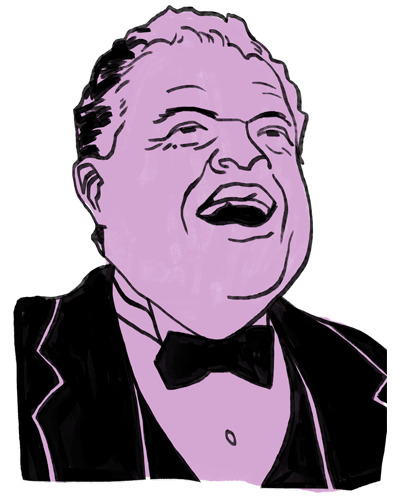 Anton Armstrong
Anton Armstrong
Voice Raiser
Carrying the weight of Minnesota’s Lutheran college choir tradition is not for the faint of heart. But for 32 years, Dr. Anton Armstrong has led the illustrious St. Olaf Choir in service to his students, his audiences, and to the music itself. Armstrong’s love of choral music began when he was a child singing in the American Boychoir. The experience, he says, “opened my world to the beauty of choral singing and the transformative power it could have on the performer and listener.” At 66, Armstrong continues to nurture students, tour the globe, and inspire audiences.
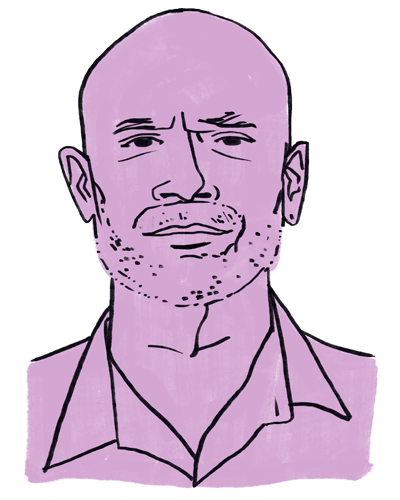 Daniel Bergin
Daniel Bergin
Narrative Weaver
Inspired by Black artists like Gordon Parks, filmmaker Daniel Bergin, 56, uses his camera as his “weapon of choice,” fighting back against what he calls “the slow burn of stereotypes, criminalization, and dehumanization” of Black men he sees in the media. His films go deep into the history of inequity in Minnesota, revealing the layers of racism, homophobia, sexism that are often forgotten or ignored. At the same time, Bergin pulls on the narrative threads of creativity, activism, and resilience from the people and communities most affected by these issues, pointing viewers to a more expansive and generative story of who we are as Minnesotans.
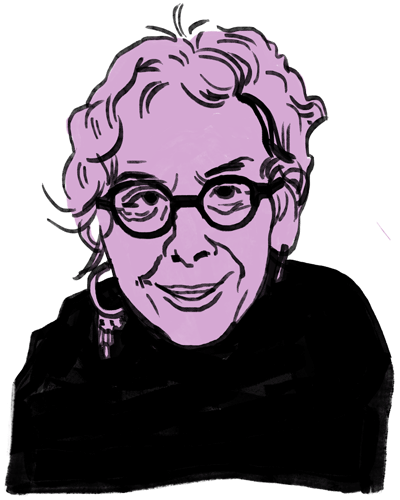 Susan Boecher
Susan Boecher
Community Creator
As an artist, teacher, and community organizer, Susan Boecher is known for her careful mentorship and intentional efforts to elevate the work of her students and colleagues, especially those who are traditionally underrepresented in the art world. Through her nonprofit, OverExposure, Boecher has organized photography projects, workshops, and public forums to inspire social change. Seeking connection and support during the early days of COVID lockdowns, Boecher, 71, forged community online, joining cancer support groups and son getting involved in Gilda’s Club, a nonprofit that provides services to people living with cancer. Inspired by the possibilities offered by Zoom and Facetime, she has kicked off two new collaborative projects that explore themes of isolation, loneliness and their impact on emotional well-being.
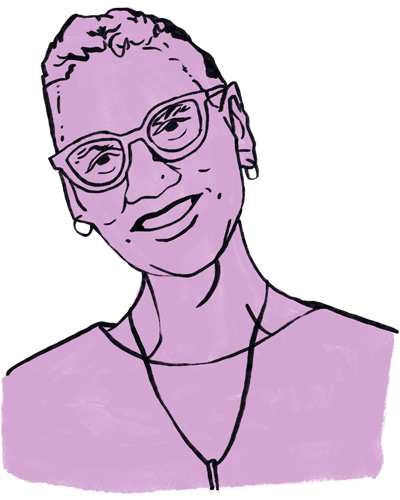
Sharon Bridgforth
Story Stager
With a long list of professional accolades to her name—Yale’s Windham Campbell Prize in Drama, a McKnight Fellowship, and a Doris Duke Performing Artist Award among them—playwright and performer Sharon Bridgforth could be spending this stage of her career basking in her success. Instead, at 64 she remains a working artist, creating healing and generous spaces for young and emerging Black artists to join her in her life’s work of “honoring and conjuring the Spirits that shaped me.” Whether the medium is dance, drama, or a podcast, Bridgforth continues to spread her message of expansive love to audiences in Minnesota and around the nation.
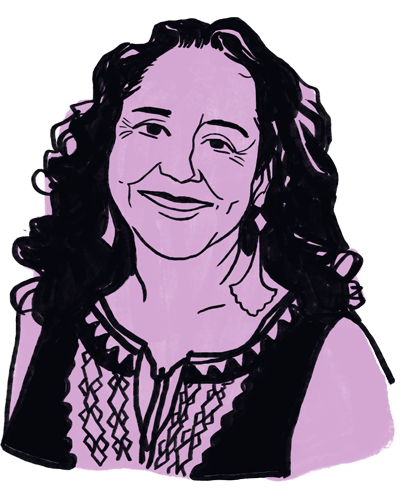 Kathryn Haddad
Kathryn Haddad
Theater Thriver
Kathryn Haddad, 57, has spent her career telling stories of her Arab American community. For 12 years, she was the Artistic and Executive Director of Mizna, one of the few Arab American Arts and literary organizations in the United States. As an award-winning playwright, Haddad’s work not only counters the devastating stereotypes of Arab Americans, but equips members of her community to connect with their history and heritage to tell their own stories. Her work has been performed at area stages like Mixed Blood and the Guthrie as well as through the theater collective she founded, The New Arab American Theater Works.
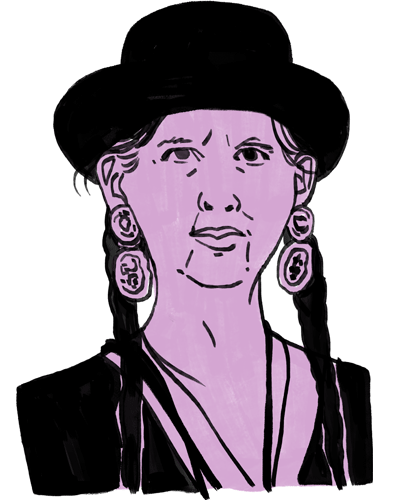
Elizabeth Jaakola
Sound Shaper
An enrolled member of the Fond du Lac band of Lake Superior Ojibwe in Cloquet, with roots in both the Anishinaabe and Finnish-American communities of Northern Minnesota, Elizabeth “Lyz” Jaakola is committed to capturing a kind of soundtrack to the lives of Minnesota’s Indian/Finnish population. At 53, she performs and composes music that draws from traditional Anishinaabe music, jazz, blues, even opera. She is set to record her second Indigenous opera which will also be performed at the Kennedy Center. Back in Cloquet, she is the founder of the Oshkii Giizhik Singers, a community choir of Native women. She teaches Music, American Indian studies & Media Production at Fond du Lac Tribal and Community College and was recently elected to the Cloquet City Council.
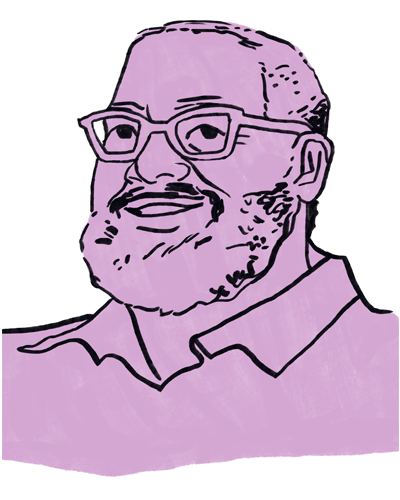
Michael Kleber-Diggs
Word Wrangler
For the last six years, poet and essayist Michael Kleber-Diggs, 54, has been a leader and instructor with the Minnesota Prison Writing Workshop, helping to cultivate and elevate the powerful literary voices of Minnesota’s incarcerated community. As a teacher, he helps his students discover new forms of expression and tap into new skills. At the same time, he’s pushing the broader community to rethink its narratives about incarcerated people. It’s fitting work for Kleber-Diggs, whose own writing is grounded in an exploration of “how we extend to each person autonomy, dignity, support, and protection.” He’s known as an outspoken voice for social justice in the St. Paul community, using his voice online and in person to call out injustice and move for change.
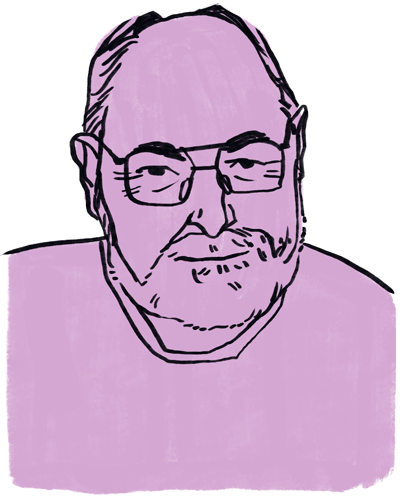
George Roberts
Gallery Grower
George Roberts, 79, remembers his first experience with the transformative power of art. When he was 15, he visited the Walker. He says, “I had no language for what I was seeing, no training, no previous experience with contemporary art, but I knew what was happening to me was taking me somewhere I deeply longed to be.” For more than 50 years, Roberts has fanned that spark into a blazing presence in North Minneapolis. After three decades teaching writing and literature at North High School, he founded Homewood Studios, an art gallery and artist studios in his North Minneapolis neighborhood where artists can show their work free of charge, making gallery shows more accessible for artists and audiences of all economic backgrounds.
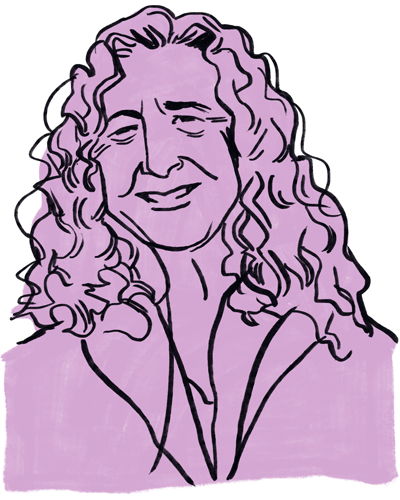 Sandy Spieler
Sandy Spieler
Artistic Celebrator
As a founding member and Artistic Director of Minneapolis’s In the Heart of the Beast Theater (HOTB), Spieler, 69, directed the legendary MayDay parade and pageant for more than 40 years. Each year, Spieler pulled together thousands of community members to create puppets and masks and astonishing floats. She coordinated more than 300 community performers of all ages, launched canoe flotillas and shepherded the huge puppets at the center of this unique community celebration. As the MayDay parade has changed, other groups have been inspired by her spirit to create new traditions and community-led celebrations. But what about the puppets? When the theater downsized a few years ago, there was a push to dismantle the huge stock of larger-than-life puppets. Instead, Spieler held recognition of the cultural archive represented by these works of art. She is working with a team to catalog them, find new homes for them in museums and other spaces, and create collections that can be activated in the community as needed.
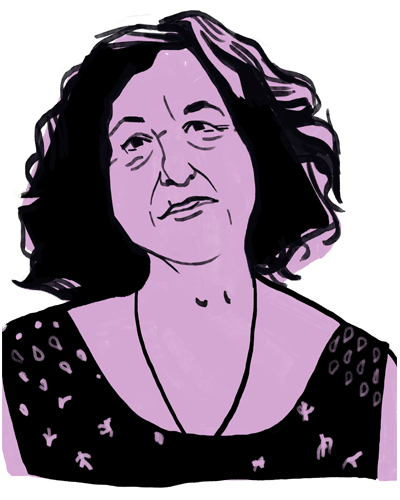
Barbara Wiener
Critical Chronicler
Whether she’s working on social justice filmmaking with teenage girls, offering online visual storytelling classes to seniors, or joining Antonio Espinosa (see Disruptors) to help tell the stories of the men creating art at the Minnesota Correctional Facility in Stillwater, filmmaker Barbara Wiener’s work reveals what’s invisible and draws out what’s been diminished, sometimes to astonishing effect. In 2018, Wiener, now 67, made what’s known as a sentencing film for a group of people being charged in an unsuccessful bloodless coup trying to end a brutal dictatorship in the Republic of Gambia. The one-hour film offered a more nuanced understanding of the efforts of those charged and was taken into consideration by the judge. After deliberations, the longest sentence given was nine months. Although the coup had failed, Wiener’s film pointed to the bravery of those involved and word spread. The Gambia was liberated within a year.
At the core of every nonprofit is a mission—the guiding force behind the organization’s work—but at its heart are the leaders and workers who bring that mission to life. The nonprofit honorees this year bring vision and an unwavering dedication to service. They are working to end genocide, find cures to chronic diseases, help families process grief, and more, all to make the world a more hospitable place.

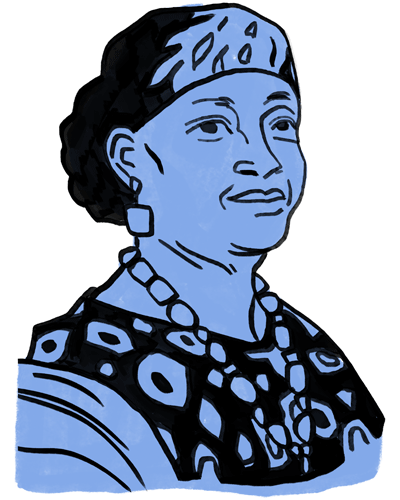
Atum Azzahir
Culture Connector
In 1994, medical experts tasked community health researcher Atum Azzahir with figuring out why Black babies died at higher rates than white babies. But Azzahir decided to look at the question from the other direction—what was helping Black babies live? Knocking on doors to speak with Black mothers, grandmothers, and elders, Azzahir found a common thread: Babies born in ways that honored the traditions of birthing teams, elder guides, doulas, and breastfeeding so common in African cultures were the babies who thrived. For decades, Azzahir’s work has been defined by community-engaged research and cultural wellness. At age 50, she started the Cultural Wellness Center in Minneapolis with the goal of reconnecting Black communities with the health and wellness practices that are their birthright. Now 78, Azzahir’s reputation has made her the go-to resource for Black communities processing the ongoing trauma of police violence and economic injustice, leaning on the cultural practices, rituals, and ceremonies of Black ancestors to bring healing, strength, and connection.
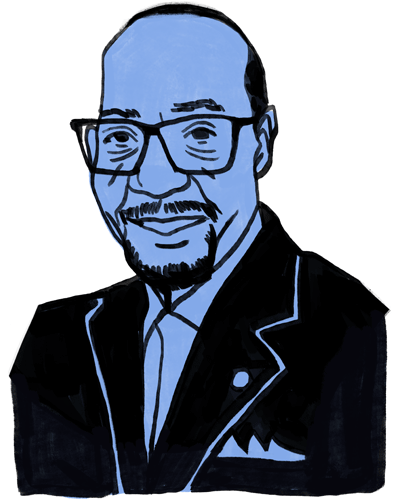
Freddie Bell
Airwave Activator
Freddie Bell is the voice of and for the people. Bell, 68, is general manager of the KMOJ Center for Communication and Development, and chairman of AMPERS (Association of MN Public Educational Radio Stations). With a long-time reputation as a champion for young broadcasting talent and a radio host who brings historical context to the music he plays, it’s not surprising that Bell’s nationally syndicated Freddie Bell Show was the trusted source of news about the pandemic for Black Americans trying to sort out fact from fiction. In 2020, Bell launched a journalism initiative called Racial Reckoning: The Arc of Justice with AMPERS, KMOJ, and the Minnesota Humanities Center to cover the trials of the former police officers who murdered George Floyd and the Black community’s efforts to create a more just society.
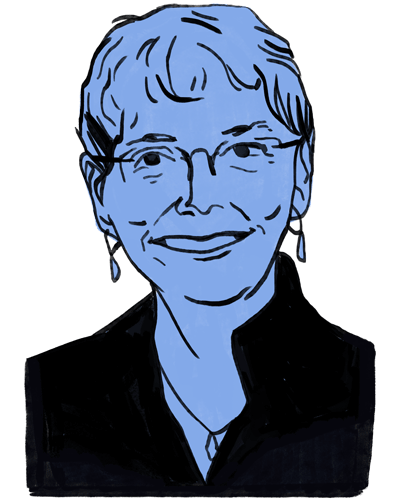
Laurie Dahley
Service Saver
For more than 40 years, Laurie Dahley, 65, has been serving communities in rural Minnesota as a social worker. That work is becoming more challenging by the year. Right now, rural areas are facing the worst shortage of health and human service professionals in history. Those social workers who are carrying the load are burning out at record high rates. So Laurie Dahley is doing something about it. Mid-way through her career, she realized that part of her mission was not just to serve her clients, but to make sure there would be someone there to serve their children. She made the move to academia and is now a Professor Emeritus for Concordia College, where she works to produce continuing education for human service professionals.
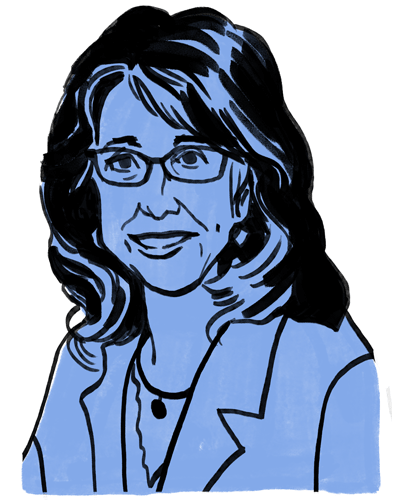
Ellen Kennedy
Rights Warrior
In 2005, Ellen Kennedy was teaching her sociology students about the genocide in Rwanda. One of them said, “What are we going to do about this?” Kennedy, now 74, calls this her “enough” moment, one that spurred her to start World Without Genocide in 2006. Now a powerhouse human rights leader, Kennedy and World Without Genocide have stepped into the highest chambers of state, federal, and world governments to advocate for human rights. The organization compelled the Minnesota legislature to divest the state’s pension funds from companies complicit in the genocides in Darfur and Sudan. Eight Minnesota cities and the MN Bar Association have done the same. Kennedy and her organization have submitted amicus briefs to the MN Supreme Court to restore voting rights to formerly incarcerated people and to fight for the rights of a transgender student in a legal battle with the Anoka Hennepin School District.
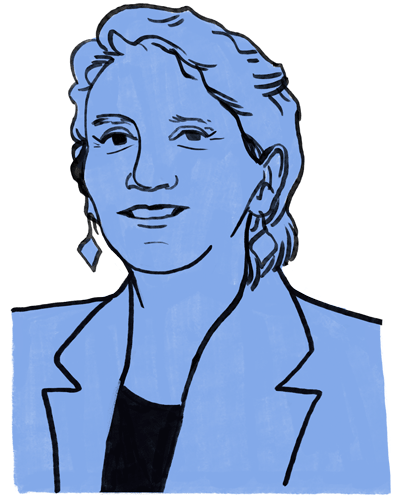
Sona Mehring
Care Connector
It was 1997 when Sona Mehring got a phone call that changed her life. Her friend had delivered her baby girl at 24 weeks. In the midst of all the fear and pain of this devastating event, Mehring could see a need. As a software engineer, she put together a simple website for her friend to keep family up-to-date on the baby’s health. Baby Brighid only lived for nine days, but during that short time, her family had access to the love and care of their community, thanks to Mehring’s site, called Caring for Brighid. 25 years later, that site is called CaringBridge and it serves as an irreplaceable support system for millions of people experiencing a health crisis. For Mehring, now 60, the mission of CaringBridge is the same as it was when it focused on one family: To help people be with the ones they love, even when they’re far away.
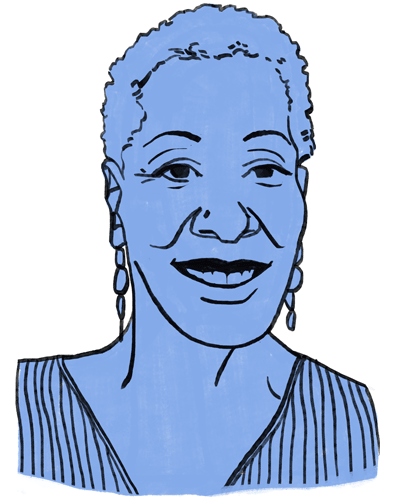
Katherine Sublett
Injustice Eraser
As a young woman, Katherine Sublett got into trouble. She paid her debt, did her time, and stepped back into her community ready to start fresh. And then she found out she couldn’t. Even 30 years after leaving prison, her felony record still made it legal for her to be denied housing and jobs. So she set out to change that. As founder and executive director of Let’s Erase the Stigma, Sublett, 63, leverages the same powers of persuasion she used to get her own record expunged to help others walk through the long and tedious process of reclaiming their rights after incarceration. In less than a year, she’s helped 10 people successfully expunge their records, with 8 more cases pending. Along the way, she mentors her clients on budgeting so they can improve their credit, and helps restore their self-confidence and sense of self-worth.
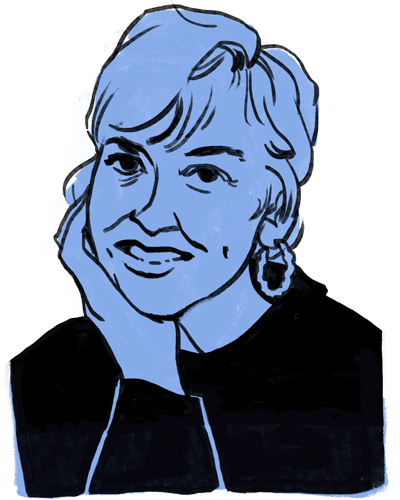
Joelle Syverson
Cancer Fighter
This year, more than 78,000 people will be diagnosed with a brain tumor. And Joelle Syverson, 56, is ready for them. She founded the Humor to Fight the Tumor Foundation (HTFT) 19 years ago after getting her own devastating diagnosis of a brain tumor. Her annual HTFT galas have raised more than $5.8 million for research and aid. Donations to both local organizations that support people with brain tumors and special projects at places like Mayo Clinic and the U of M have made Syverson and HTFT valuable partners in the work to help people with brain tumors survive and thrive. Syverson continues to live with recurrences of her own tumor, but she remains a strong and steady and joyful advocate for people just like her.
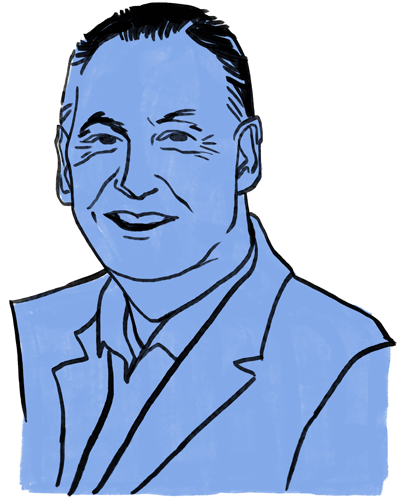
Al Tachovsky
Friendly Funder
Many nonprofits start in response to a big social issue or community need. But some, like Al Tachovsky’s MS Birdie Bash and Dinner Gala, start because a friend needed help. About ten years ago, Tachovsky, 59, met up with an old high school friend, only to learn his buddy’s life had been changed by Multiple Sclerosis. Tachovsky jumped into action, organizing the first Birdie Bash to raise money for his friend. It went so well that the annual event has now raised more than $500,000 to help people with MS cover the costs of equipment, therapies, and medications. Tachovsky spends the rest of his year as a real estate agent specializing in the needs of senior clients and facilitating a weekly recovery group through EagleBrook Church.
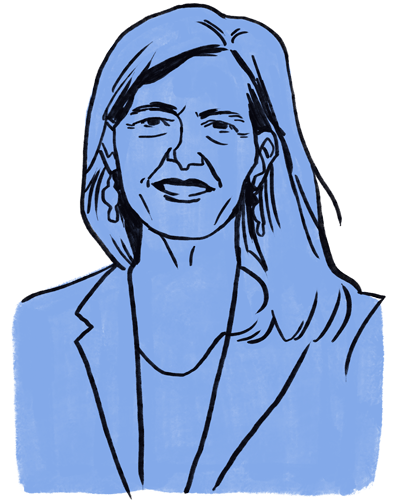
Cheryl Thomas
Global Protector
In the face of terrible statistics–one in three women will experience violence in her lifetime, more than 600 million women live in countries where domestic and sexual violence is not illegal, a woman is beaten every 9 seconds—Cheryl Thomas, 65, refuses to get discouraged. As a highly respected international human rights lawyer, Thomas understands that solving these problems takes persistence, grit, and a spine of steel. In 2014, she used all three to start Global Rights for Women (GRW) and has spent the last 8 years working in 40 countries around the world to change their laws and public policies to protect women and girls from violence. She helped create a global Essential Services Package for victims of gender-based violence that has become a UN baseline recommendation for member nations. Closer to home, Thomas has worked with the Minneapolis Police Department to evaluate their response to domestic violence calls, and created a direct service program for abusers to address the root causes of gender-based violence.
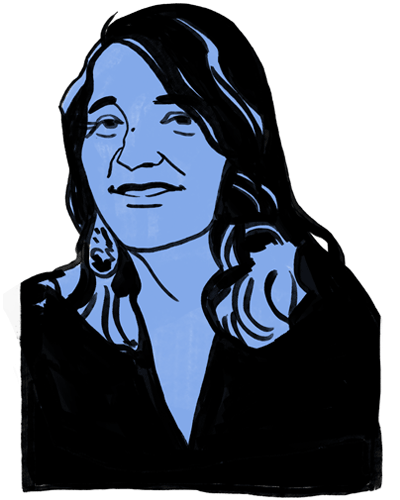
Ivy Vainio
Celebration Capturer
Photographer, activist, and community leader Ivy Vainio, 53, grew up as one of the only Black and Indigenous people in her rural Minnesota community. So she understands that the lack of role models and cultural touch points can create real challenges for BIPOC kids. She set out to change that. Serving as the Art, Climate, Culture, and Communications Coordinator at the American Indian Community Housing Organization in Duluth, Vainio has the opportunity to shape the way Black and Indigenous people in the region see themselves and their culture. Toting her camera named Bruce Willis to dinners, pow wows, language camps, and art events, Vainio captures the joy and celebration of her community. Her work has been shown at the Tweed Museum in Duluth, and in national publications. Along with her husband, Arne, she is a force for good in Minnesota’s north country.
There is no age limit to compassion and the drive to help those around you. The honorees in the community category prove as much. Their years of life have given them the big-picture thinking to make their communities better, from working to end homelessness, promote healing after trauma, or support those facing economic instability.

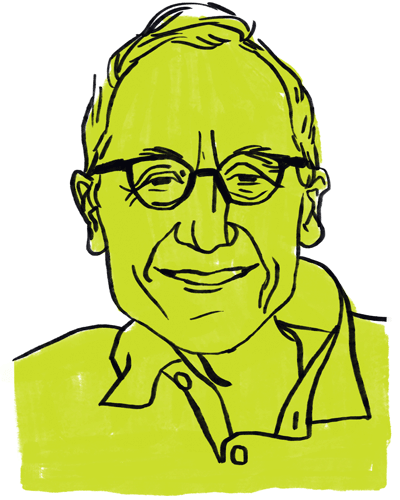
Bill Betzler
Healing Helper
Can one person make a difference? If Bill Betzler is any indication, the answer is a clear and resounding “Yes!” For Betzler, 75, creating stronger communities means understanding the ways people are harmed by broken systems and then working to disrupt and remake those systems, one problem at a time. Betzler has invested his time in helping families find housing as a volunteer at The Dignity Center in Minneapolis. He works with R3, Teen Challenge, and Crossing Home, providing re-entry support for people leaving prison. Finding hope in his own journey toward healing and wholeness, Betzler walks alongside people trying to stay sober, people struggling to find and keep stable housing, and people pushing against barriers of sexism, racism, and agism. To each person, he is an advocate, a mentor, and a friend.
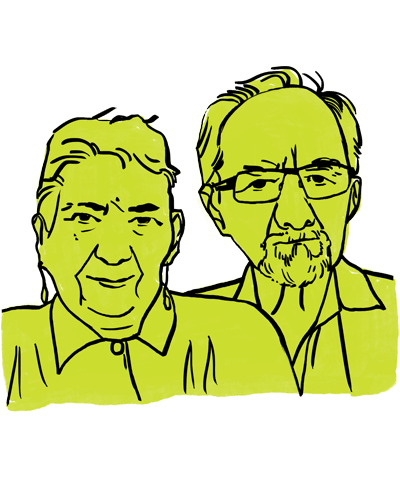
Joan and Segundo Velasquez
Sustainable Suppliers
It started with a visit home to Bolivia. In 1994, Segundo Velasquez got a request from his brother, a pediatrician in their home country of Bolivia. Could Segundo get his hands on discarded medical supplies in Minnesota and bring them with him on his next trip home? Segundo could and he did. What happened next is, well, astonishing. Seeing a way to build on this simple idea, Segundo, 71, and Joan, 80, who brought her extensive background in social service policy and practice to bear, founded Mano a Mano International Partners. Since 1994, the nonprofit has developed partnerships with local community leaders to identify health and educational needs throughout Bolivia. As a result, the organization has shipped more 4,000,000 pounds of supplies, built 177 community health clinics that serve 1 million patients each year. They have constructed 67 schools, carved 1,200 miles of arterial roads on mountain terrain, and drilled deep wells and built reservoirs that make water available to more than 85,000 people. In addition to their clinics and schools, they created an air rescue service that’s airlifted 4,449 sick and injured people from isolated communities, bringing them to lifesaving care in urban hospitals. They created a Center for Ecological Agriculture where rural Bolivian farmers, community leaders, and students can learn about sustainable land and water use. Most importantly, each of these projects is still in operation, owned, staffed, and maintained by the Bolivian people.
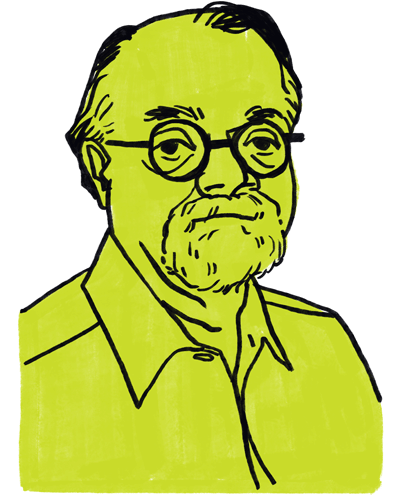
Dave Beal
City Server
Dave Beal wants to redefine the role of citizen. What could a community look like if every resident felt a responsibility to ensure that the places we live can sustain us and to act when they don’t? The answer might look something like what’s happening in Beal’s community of Rochester. With a well-earned reputation for advocating for older adults, Beal, 68, was asked to facilitate the work of a community-based group promoting social and economic justice in Rochester. Together, they formed In the City for Good, an ongoing collaborative effort to give every citizen a voice in the issues that affect them. Beal also played a central role in bringing Olmsted County into the AARP network of Age-Friendly States and Communities.
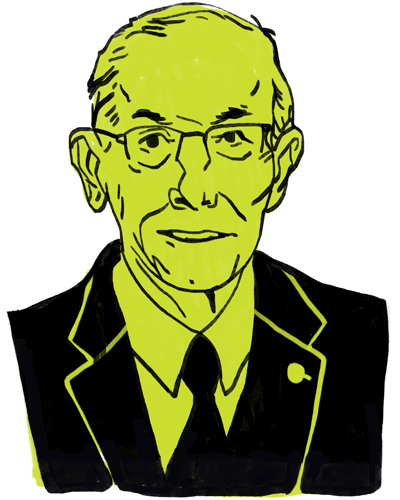
A. Stuart Hanson
Conversation Starter
As a pulmonary and critical care physician A. Stuart Hanson leveraged his knowledge and expertise to advocate for tobacco control and abuse-free medical workplaces. So when he settled into the Parkshore Senior Campus, it’s no surprise he brought that same commitment to making lives better to his new neighbors. Early on, Hanson, 85, introduced other residents to the book Being Mortal by Atul Gawande that covers issues of death and dying. From there a small group formed, meeting regularly to talk about concerns like end-of-life planning and advance directives. Under Hanson’s leadership, the group has written and published a book, A Senior’s Guide for Living Well and Dying: Conversations that Matter. Written with Hanson’s compassionate voice, the book guides seniors and their loved ones through the conversations no one wants to have—and everyone needs to have.
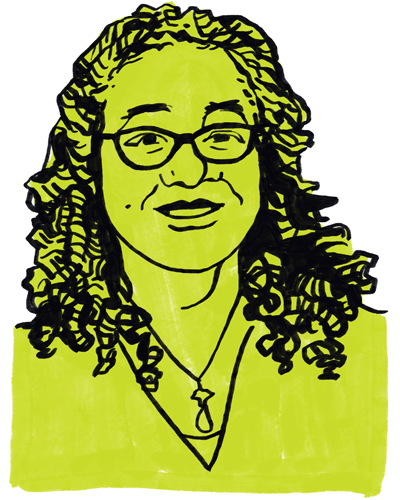
Dr. Annette Parker
STEM Inspirer
Dr. Annette Parker knows what it means to reinvent yourself. After a long career in technical education in the automotive industry, she switched gears to become a leader in STEM higher education. For the past nine years, Parker has served as President of South Central College in North Mankato. As a Black university president with a STEM background, Parker, 64, is blazing a trail through southern Minnesota, busting through stereotypes of race and gender. As a volunteer and board member with Greater Mankato Growth and Cities, Colleges, and Universities Advisory Council, the Mankato YWCA, and various professional organizations, Parker is using her substantial leadership skills to support her community and inspire Black women and others to create their own way forward.
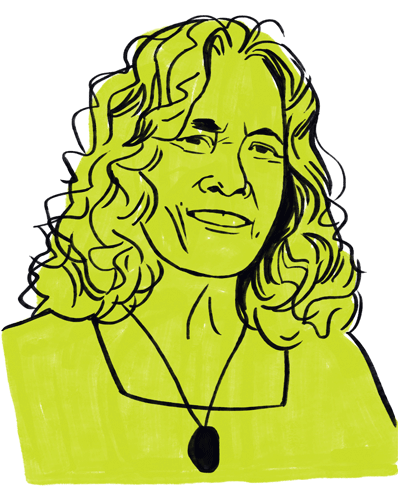
Julie Ristau
Roots Regenerator
For more than 30 years, Julie Ristau has been disrupting and dismantling agricultural policies and practices that stress the earth, gobble up land, and limit access to food for marginalized communities. As an expert in land acquisition and repurposing, Ristau, 68, has worked with environmental trusts and land restoration groups to gift land for public use and regenerative agriculture. Lending her expertise to Sharing our Roots, a regenerative farm in Northfield, Ristau spearheaded a partnership with Dakota County that led to the acquisition of a permanent 100-acre farm that will support immigrant and emerging farmers and offer a model of regenerative, cooperative farming.
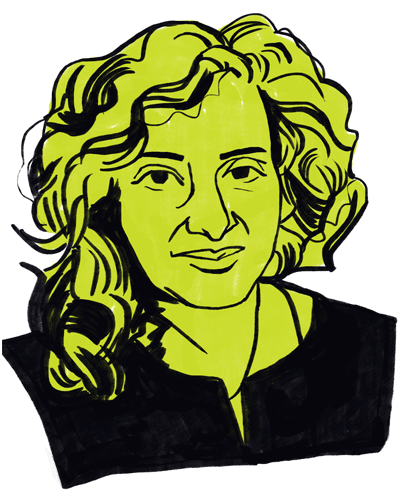
Bharati Acharya
Health Mender
Long before trauma-informed therapy was recognized as a mainstream field in mental health, Bharati Acharya, 54, was working with her clients to unwind the tangled threads of abuse and help them mend their lives. At her office in Minneapolis’s Phillips neighborhood, she welcomes people who have been traumatize by abuse, neglect, poverty, and sex trafficking. Her work aims to bring these clients—mostly women of color—back to themselves, reconnecting with their inner sources of strength and resilience, and supporting them as they interrupt cycles of historical and generational trauma. Her trainings and presentations help to share her learnings with an even wider audience. She serves on the Minnesota Board of Behavioral Health and Therapy, and Minnesota’s Culturally Informed and Culturally Specific Task Force.
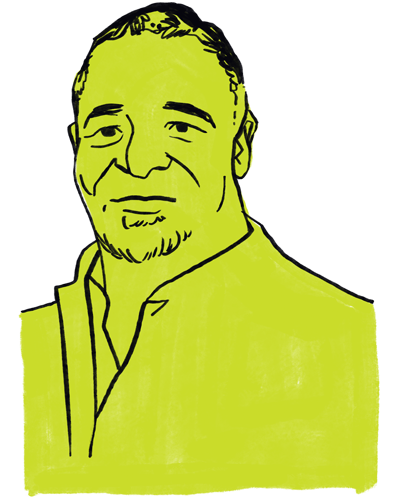
Metric Giles
Policy Pusher
Stopping the slow drip of inequity means knowing where to look. For Metric Giles, co-executive director of the Frogtown Community Stabilization Project, that means paying attention to the details of community policy. Who benefits from a plan? Who’s harmed by it? Whose voice isn’t being heard? Too often, he knows it’s the BIPOC elders of his community who are most affected by policies made by other people. So Giles, 68, has used his position on the FCSP to convince the Ramsey County Board of Commissioners to improve the process for condemning houses, tipping it in favor of residents. As a member of the Age-friendly and Equity Alliance, Ramsey County, he has challenged the County Commissioners to incorporate an aging lens to all their decisions and create a line item for services for the elderly.
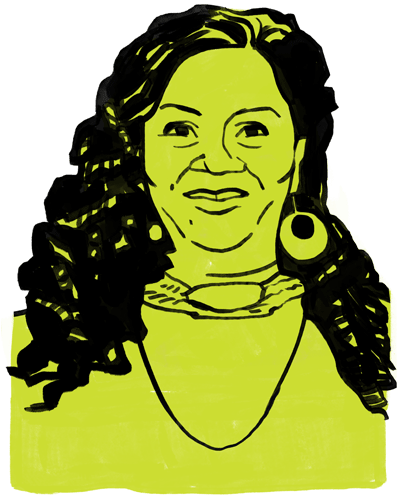
Belinda Charleston-Green
Support Shaper
Ten years ago, as a volunteer with various nonprofits in the metro, Belinda Charleston-Green, 55, became keenly aware of the lack of resources available to Black women with HIV/AIDS. While there were plenty of organizations serving people living with HIV, Charleston-Green noticed that most of those people were white men. Women support groups seemed to be off their radar. In 2013, she became a case manager with Minnesota AIDS Project (MAP)/Rainbow Health and has since implemented peer-facilitated support for women and people of color living with HIV, partnering with organizations in greater Minnesota to expand the reach of this critical connection.
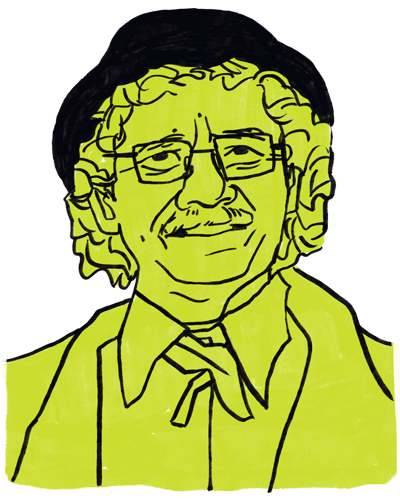
Lowell Johnson
Experienced Educator
Lowell Johnson, 74, is not a person for grand gestures. Instead, he is committed to focusing his time and energy on local issues where he believes he can have a real impact. And that’s exactly what he’s done. In addition to leading a team of retired educators to teach literacy, art, and
brain science classes in the Crow Wing County Jail, Johnson is the founder of the ACE (Adverse Childhood Experiences) Resiliency Coalition in Crow Wing County. Through this work, Johnson is educating his community on brain science, mental health, and the effects of trauma on emotional and social wellness. Through seminars, webinars, articles, a crisis line and referral service, Johnson and his team are building understanding of the ripple effects of childhood trauma and neglect and supporting their neighbors with resources to help them recover and build resilience.
Businesses enliven our communities, providing opportunities for people, neighborhoods, and cities to flourish. This year’s business honorees illustrate just how much their experiences, earned business savvy, and dedication can transform the spaces around them. From businesses specializing in travel to food to recycled goods, the honorees lead with their hearts first.

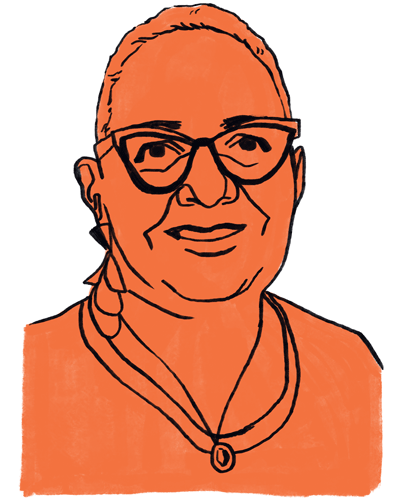
Tracey Williams-Dillard
Caring Chronicler
As publisher of the Minnesota Spokesman-Recorder (MSR), Minnesota’s oldest black-owned, family-owned, female-owned newspaper, Tracey Williams-Dillard, 62, knows that her work is about more than the printed word. Every week, the MSR hits more than 40,000 homes, reaching even more readers through free outlines and its online presence. During COVID, it has been a trusted source of health information for the Black community, keeping readers up-to-date on CDC recommendations and federal mandates. But Williams-Dillard’s reach goes beyond what shows up in her paper. She created Sister Spokesman, a monthly gathering of women of color where they can encourage each other, build their networks, and strengthen their bonds. For 15 years, this space has been a source of healing and celebration for Black women in the Twin Cities.
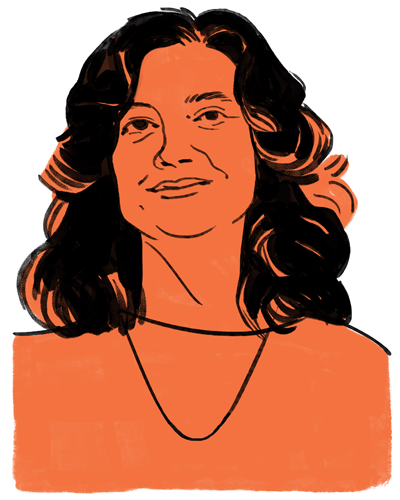
Heidi Habben
Creative Climber
Heidi Habben, 55, started her career at the reception desk at CRASH+SUES media company in Minneapolis. Now, she owns the place. Along the way, she has created a work culture shaped by a set of core values that define Heidi herself: Fearless, invested, united, and driven by integrity. Along with choosing clients and projects based more on their contributions to the community than their budget, Habben has launched a nonprofit, the CRASH+SUES Foundation, giving out more than $30,000 in less than six months to local organizations like The Sanneh Foundation, Urban Ventures, and Five Stone Media.
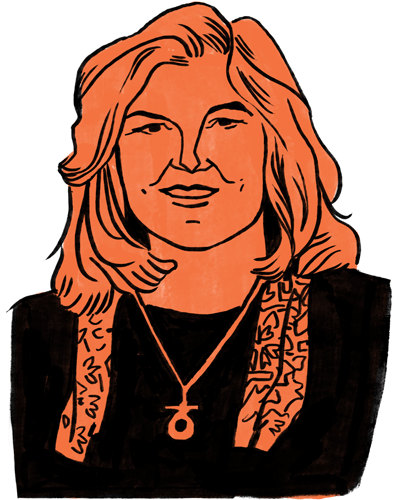
Anne Sample
Forward Navigator
After a series of high-level HR roles at places like PepsiCo, Thrivent, and Citibank, Anne Sample felt a drive to make philanthropy part of her personal mission. She connected with Navigate Forward, a Minnesota-based company offering coaching to senior executives in transition. She was so impressed, she bought the company. Now, Sample, 58, spends her endless energy pushing philanthropy into every part of the organization. When the team lands a new client, they celebrate by donating to the client’s charity of choice. In 2021, they donated more than $40,000 to 134 nonprofits and are on track to donate more than 5% of their 2022 earnings to charities. Along with their consulting work, Navigate Forward provides critical cohort support to women of color who have the background to serve on boards, makes women aware of those opportunities, and sets them up to thrive.
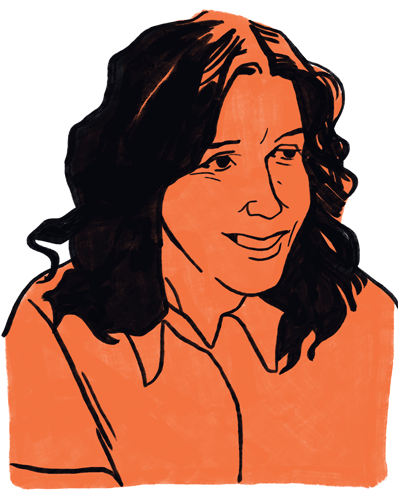
Kim Olson
Broadband Builder
Kim Olson works every day to tell the story of the heroism of the American farmer. As Chief Communications Officer for Land O Lakes, she had a front row seat to see that the lack of broadband access was leaving farmers and their communities at a deficit that went well beyond not having streaming services. To address the problem, Olson, 56, helped bring awareness, advocacy and action to the issue as CEO Beth Ford and her team created the American Connection Project, an initiative to bring internet connection to rural communities and enable better healthcare, education and economic outcomes. Convening organizations and leaders from across the country, Land O Lakes’ cooperative network and other companies made free, public wi-fi available in 49 states and launched the American Connection Corps. Ultimately, the American Connection Project Policy Coalition helped assure more than $65 billion for accessible broadband was added to the recently-passed jobs and infrastructure bill.
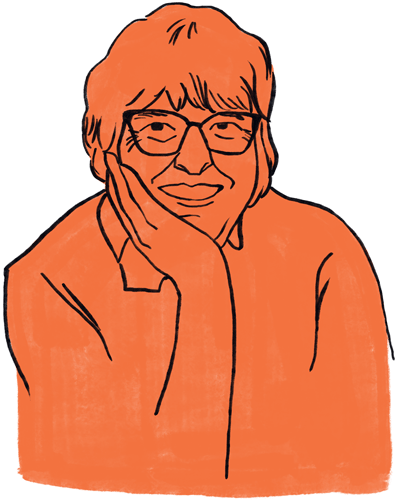
Julie Steller
Cozy Crafter
Long before Bernie Sanders wore his meme-worthy mittens, Julie Steller was crafting mittens, bags, jewelry, and homegoods from repurposed wool sweaters. In 2009, Steller brought her sewing hobby out of her spare bedroom and into specialty shops throughout Minnesota. Now employing more than a dozen artists in her Northeast Minneapolis workshop and retail space, Steller, 64, has built a business where women artists gather to share their craft, their stories, and their expertise. Both a studio and a public Makerspace, Steller Handcrafted Goods is a space where wonder, joy, and delight are infused into every product. Whether it’s sweaters or people, Steller believes that everything has an unfinished story to tell.
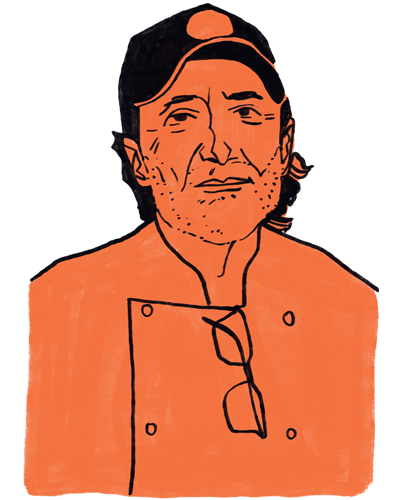
David Fhima
Culinary Conductor
David Fhima’s eponymous restaurant is known for its glamorous interior, its innovative food, and its invitation for what Fhima’s calls a ‘lipstick on the collar’ kind of night. Fhima himself, 61, however, is known for his bottomless generosity. A few examples: Ever since he found himself in Minneapolis 30 years ago, he has donated his time as a chef for galas, fundraisers and school career days talks. He’s consulted with school districts to improve their meals. Sharing his restaurant space with Minnesota Central Kitchen, Fhima and his team provide up to 10,000 meals a week for underserved communities. And when COVID left the entire industry in shambles overnight, Fhima and his family linked arms with Chef Justin Sutherland and the Sanneh Foundation to create The North Stands, offering financial help to industry folks who were out of work. That’s some serious hospitality.
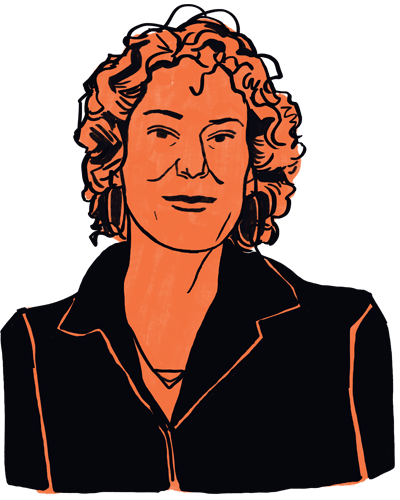
Mary Quinn McCallum
Client Guider
Chances are, if an organization is doing good work in Minnesota, Mary Quinn McCallum is telling someone about it. As CEO of strategic communications and PR consultancy Field Guide Inc, McCallum, 55, directs traffic at the intersections of environmental, social, and racial justice by lifting up the work of her change-making clients. Offering her expertise on everything from communications consulting, to media relations, to core brand work, McCallum has helped organizations like Appetite for Change, Tech Dump, and Can Can Wonderland, tell their stories and shake up their slice of the Metro.
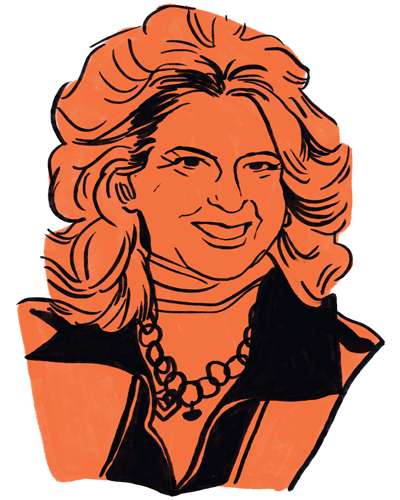
Carol Giuliani
Safe Traveler
Carol Giuliani, 63, wanted two things in retirement: to travel and to serve elderly people. Her passions led her not only to create a business, but a whole industry. Six years ago, Giuliani created Senior Travel Companion Services, LLC (STCS), an innovative service that works out logistics and offers travel companion services for vulnerable adults. Most of her clients have some kind of health concern, like dementia, Parkinson’s vision loss or mobility issues that make traveling alone challenging at best, dangerous at worst. STCS offers travel escorts who accompany seniors on their trips, offering peace of mind for all involved. Giuliani herself has been a travel companion on more than 100 trips so far. Along the way, she’s been able to advocate for the Sunflower Lanyard program that alerts TSA agents when a traveler has a hidden disability like autism or aphasia. She’s a volunteer with the Dementia-Friendly Airports Working Group, an international coalition of service professionals, airport staff and travel advocates working to improve air travel for people with dementia.
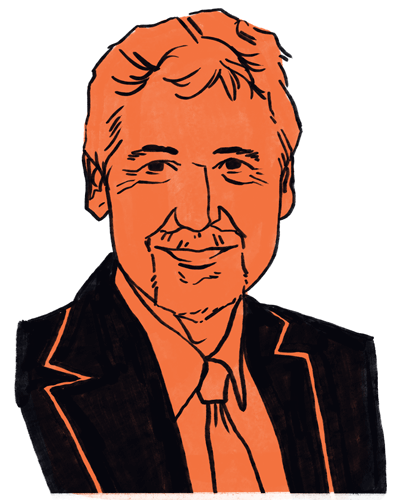
Dan Stoltz
Growth Giver
Dan Stoltz came on as President and CEO of SPIRE Credit Union in the middle of the 2010 recession. In the 22 years since, SPIRE has surpassed $2 Billion in assets and serves more than 150,000 members. That’s impressive, but for Stoltz, 62, that growth is gravy. The real legacy of his leadership is the culture of service and community that’s baked in to every part of SPIRE. Here too, the numbers tell the story: More than $1 Million in charitable donations since 2019 through the SPIRE Treasures Give Back VISA card. $250,000 donated in April 2020 to 187 local organizations and businesses affected by COVID-19. A 2021 campaign to give $50,000 to 50 Minnesota businesses and charities. A 2022 campaign to give $52,000 to 52 nonprofits. A $50,000 matching gift to Pain Free Patriots that gives aid to first responders, veterans and others. $10,000 to the American Cancer Society through SPIRE’s annual Pinktober fundraiser. For Stoltz, those are the numbers that matter most.
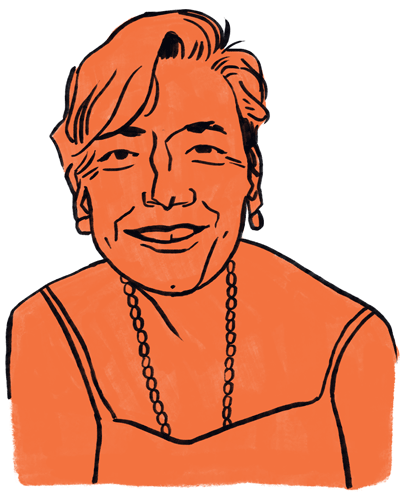
Lynn Wehrman
Access Accelerator
Accessibility has become a bit of a buzzword in business circles. But for Lynn Wehrman, employing and empowering people with disabilities to be their own advocates and excel as employees is more than a trend. Wehrman, 59, grew up in a small farming community in a family with a long history of mental illness and cognitive disability. She learned first-hand what it’s like to be excluded and ignored because of a disability. Fueled by the belief that things didn’t have to be that way, Wehrman built Digital Accessibility by WeCo. Wehrman’s accessibility specialists and testers bring real-life accessibility testing to digital products in a way no software can match, each are required to live with one or more disability. Her employees are empowered as experts by virtue of their lived experience and their professional training. With nearly all leadership positions held by minority women, WeCo—and Wehrman—work to ensure that no one is left out.

THIS STORYTELLING EXPERIENCE IS BROUGHT TO YOU BY
AARP Minnesota works every day to challenge outdated beliefs and spark new solutions. Pollen and AARP Minnesota came together to recognize and celebrate the possibilities and contributions that come with age.

All of us at Pollen and AARP Minnesota owe a great deal of thanks to our selection committee for all the time and energy they invested in helping us bring 50 Over 50 to life.
Selection Committee
Contributors




















